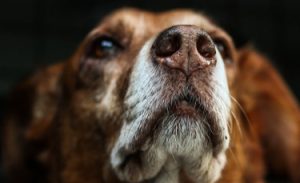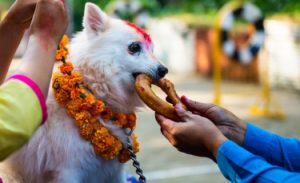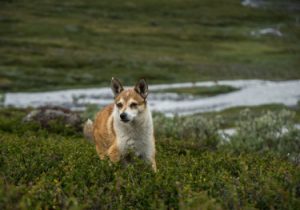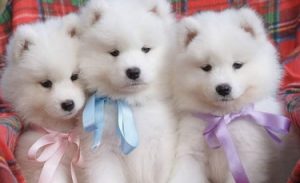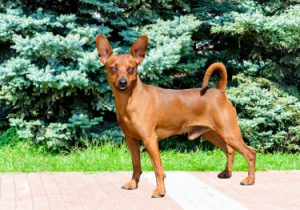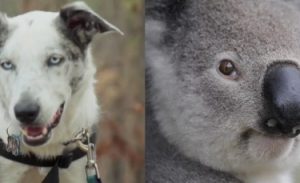Other name: Hungarian Shepherd
The Puli, or Hungarian Shepherd, is a shepherd dog of medium size, robust build, recognizable by its coat formed of long cords resembling, in a way, dreadlocks. Well muscled, with fine bones and a harmonious constitution, he is agile and fast despite what his appearance suggests. The gait of the Puli is characterized by lively movements and short strides.
<!–
–>
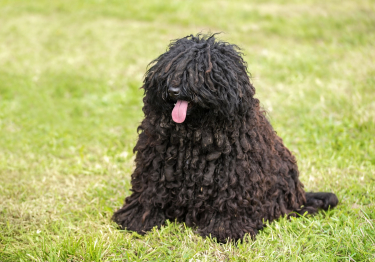
| Long | |
| Hungary | |
| Average | |
| Round |
| Sex | Weight | Cut |
|---|---|---|
| Female | From 10 kg to 15 kg | From 35 cm to 45 cm |
| Male | From 10 kg to 15 kg | From 35 cm to 45 cm |
History of the breed
If it was developed and bred in Hungary, the Puli has its origins deep in Asia . It was used by the Magyar nomads (main constituent people of present-day Hungary) as a shepherd dog , leading and protecting their flocks. The breed was relatively unknown, but gained some popularity when Facebook founder Mark Zuckerberg introduced his dog named Beast.
The Puli breed was definitively recognized by the FCI (Fédération Cynologique Internationale) on August 11, 1954. Its official FCI standard in force was published on October 29, 2013.
Physical features
His hair: forming long cords (strands with corded hair) or flakes in adulthood, wavy and tight in the puppy. The outer coat is thick and coarse, associated with a finer undercoat.
Its color: unicolour black (possibly black with a slight rust-red or gray tint), fawn with a black, gray or pearl white mask.
Its head: round when seen from the front, elliptical when viewed from the side. The skull is rather small, the superciliary arches well developed, the stop weakly marked, the nose small and black, the muzzle not pointed, the lips tight and very dark, the jaws articulated in scissors.
Its ears: of medium high attachment, thick at their attachment, drooping, V-shaped and rounded end.
His eyes: medium-sized, obliquely arranged, dark brown in color, mostly hidden by the corded hair and displaying a look full of liveliness and intelligence.
Its body: of length equal to the height at the withers, therefore inscribable in a square. The neck is medium in length, well muscled and covered with generous hair, the topline is straight, the withers very slightly extended, the back of medium length and firm, the loins well muscled and short, the croup slightly sloping, the chest long and well let down and the belly gradually raised towards the back.
Its tail: of moderate length (reaching the hock if stretched out), moderately high attachment and forming a curl folded flat on the croup.
Behavior and character
| Affectionate | |
|---|---|
| Calm | |
| Protective | |
| Independent | |
| Hunter | |
| Barks / howls |
Behavior with others
| Cohabitation with children | |
|---|---|
| Sociable with other animals | |
| Love strangers |
the Puli is an alert, energetic, intelligent dog who is always ready to engage in any activity requiring intelligence, coordination and agility. He shows himself, in fact, particularly to his advantage in a variety of disciplines relating to dog sport. Determined and courageous , he has long asserted his qualities as a sheepdog, skillfully leading flocks of sheep and ensuring their protection. The Puli is indeed an excellent guardian , coupled with a pleasant , happy companion who enjoys the company of children .
The Puli
is it right for you? Take the test!
Education
| Clever | |
|---|---|
| Obedient |
The education of the Puli must be based on a good balance between firmness and softness . Brutality is to be totally excluded from its learning, in favor of the game, rewards and encouragement. In short, the Puli is not a complicated dog to train, nor to manage, if it is taken in hand early enough and in an adequate manner.
Living conditions
| Suitable for apartment living | |
|---|---|
| Good for new masters | |
| Love it hot | |
| Love the cold |
the Puli is made to get along with the whole family, especially children. His masters must be willing to offer him enough daily activity , but also to take care of his special dress properly.
Health
| Solid | |
|---|---|
| Ease of gaining weight |
the Puli is an overall tough and strong dog. It does not fear the cold or the rain thanks to its characteristic dress. Nevertheless, diseases and defects are to be watched in this breed, such as deafness and hip dysplasia.
Hypoallergenic breed
No
Litter size
Between 4 and 6 puppies
| Major concerns |
|
||||
| Minor concerns |
|
| Suggested tests |
|
To protect yourself from these risks and insure your companion in the event of health problems, Woopets recommends Puli dog insurance .
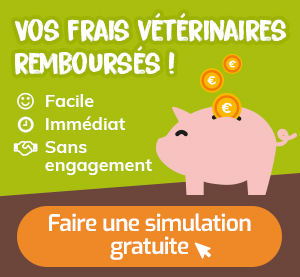
function showAssuranceForm () {var siteReferer = var id_race_association = ”; //console.log(id_race_association);success: function (html) {}});}document.addEventListener (‘DOMContentLoaded’, () => {$ (‘# assuranceModalBanner’). on (‘show.bs.modal’, function (event) {showAssuranceForm ();});});
Life expectancy
Minimum: 12 years old
Maximum: 15 years
The life expectancy of a Puli is, on average, between 12 years and 15 years.
Calculate the human age of your Puli!
To choose… 1 year 2 years 3 years Four years 5 years 6 years 7 years 8 years 9 years 10 years 11 years old 12 years 13 years 14 years old 15 years old 16 years old 17 years 18 years old 19 years old 20 years 21 years old
Maintenance and hygiene
| Ease of maintenance | |
|---|---|
| Cost of maintenance | |
| Hair loss |
| Drool level | |
|---|---|
| Ease of grooming |
the Puli is a dog that requires specific daily maintenance . However, it should not be groomed or neglected to present a natural look while remaining clean and healthy.
It is recommended not to brush the dog , but rather to regularly untangle the cords of his dress by hand . If it must be bathed (occasionally), special care must be taken in drying , because it must be sufficiently successful to avoid the formation of mold in the hair. For reasons of practice and hygiene, some masters choose to cut the hair in different places, the goal being to avoid the accumulation of debris or urine.
His teeth need to be brushed to eliminate the build-up of tartar and the proliferation of bacteria. If they do not wear out naturally, its claws need to be cut. If you are new to this, it is recommended that you seek advice from a veterinarian or groomer.
Price and budget
Purchase price
Mini
800 € Maxi
1000 €
The purchase price of a Puli is between 800 € and 1000 €.
Annual maintenance cost
Mini
€ 350 Maxi
500 €
The annual maintenance cost of a Puli is between 350 € and 500 €.
No name is currently proposed. Use our tool to find the name of your Puli!
Food
The diet of the Puli must be balanced and of quality , adapted to his level of physical exercise, his size and his age. His food is divided into 2 meals per day .
Want the best for your dog?
Customize the power supply for your Puli
I discover !
PROMO -30% | Delivered to you!
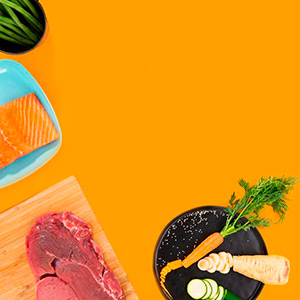
Physical activity
| Athletic | |
|---|---|
| Energy level | |
| Potential to play |
the Puli is an active dog by nature and therefore needs long and frequent outings on a daily basis . He also needs to express his energy and agility by engaging in dog sports such as agility and obedience.
Competitions
| Classifications & Standards |
|
Others
| Master character <span class="btnTooltip qTip2" title="- Calm: the master must be gentle and know how to show patience. – Active: the owner must be energetic and dynamic to live in harmony with his dog. – Hyperactive: the owner must be stimulating and very restless to suit the temperament of his dog.”> |
Active |
|---|
FCI Information
FCI No.
55
FCI Group
Group 1: Sheepdogs and Cattle Dogs (except Swiss Cattle Dogs)
Recognized by FCI
Since 1954
</div



